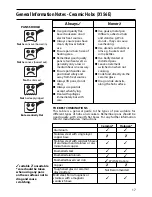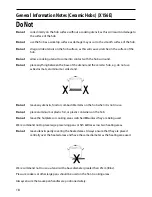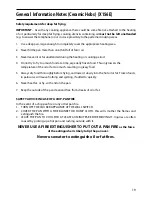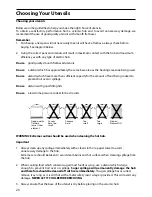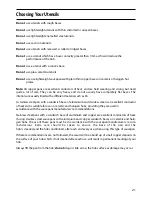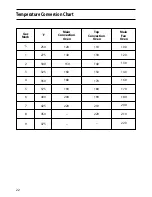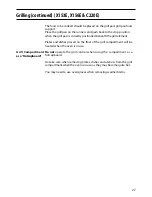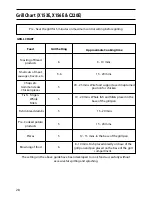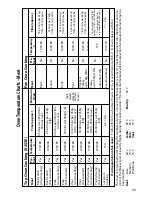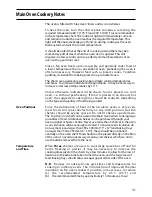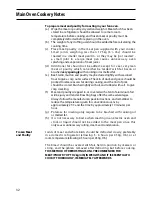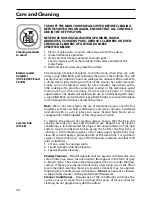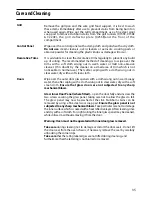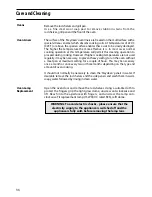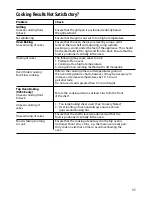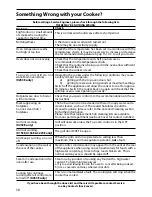
The oven is fitted with ‘Stay clean’ liners and two rod shelves.
To heat the oven, turn the control knob clockwise, selecting the
required temperature 80˚C (175˚F) and 230˚C (450˚F) as recommended
in the temperature chart. The indicator light will immediately come on
and remain on until the oven reaches the required temperature. This
light will then automatically go off and on during cooking as the oven
thermostat maintains the correct temperature.
It should be noted that at the end of a cooking period there may be a
momentary puff of steam when the oven door is opened. This will
disperse in a few seconds and is a perfectly normal characteristic of an
oven with a good door seal.
Since a fan oven heats up more quickly, and generally cooks food at
a lower temperature than a conventional oven, preheating the oven is
often unnecessary. However food such as bread, scones, Yorkshire
pudding, do benefit from being placed in a pre-heated oven.
The charts are a guide only, giving approximate cooking temperatures
and times. To suit personal taste and requirements, it may be necessary to
increase or decrease temperatures by 10˚C
Unless otherwise indicated in the charts, food is placed in a cold
oven, i.e. without pre-heating. If food is placed in an already hot
oven, the suggested cooking time should be reduced, depending
on the type and quantity of food being cooked.
Oven Positions
Since the distribution of heat in the circulaire ovens is very even,
most foods will cook satisfactorily on any shelf position, but the
shelves should be evenly spaced. Do not fit shelves upside down.
The Top Oven rod shelf can be used in the Main Oven when cooking large
quantities of food. Additional shelves can be purchased through your
oven supplier or Spares Centre. Never use more than 3 shelves in the oven
as air circulation will be seriously restricted. To ensure even circulation do
not use meat pans larger than 390 x 300mm (15" x 12") and baking trays
no larger than 330 x 255mm (13" x 10"), these should be positioned
centrally on the oven shelf. Food should not be placed directly on the floor
of the oven. To avoid unnecessary cleaning, rod shelves which are not in
use should be removed from the oven.
Temperature
When three shelves are used to cook large quantities of food for
and Time
home freezing or parties, it may be necessary to increase the
cooking times given in the charts by a few minutes, to allow for the loss of
heat due to the extra time taken to load the oven, and the large mass of
food. Baking trays should allow an equal gap at either side of the oven.
N.B. Recipes in cookery books give times and temperatures for
cooking in ordinary ovens. The introduction of improved thermal
insulation on fan ovens makes it possible, in most cases, to reduce
(a) the recommended temperature by 25˚C (45˚F) and
(b)
the recommended time by approximately 10 minutes per hour.
Main Oven Cookery Notes
31

